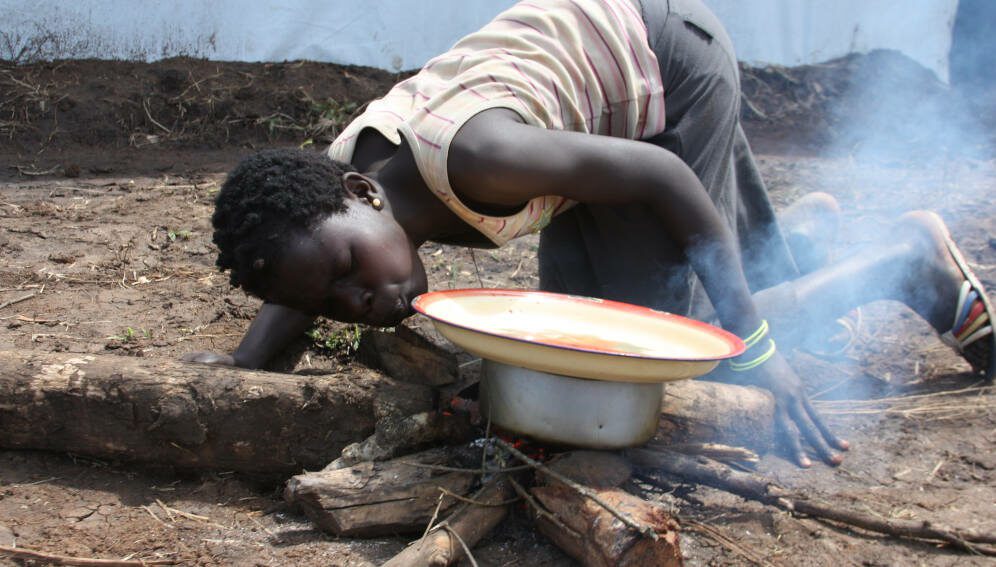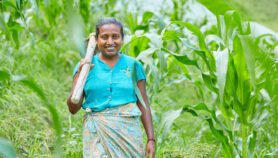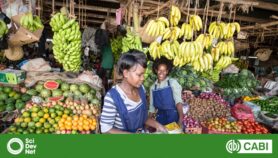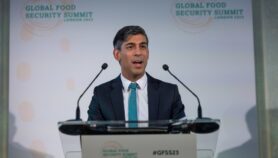26/07/21
Food policy fight over UN summit

By: Fiona Broom
Send to a friend
The details you provide on this page will not be used to send unsolicited email, and will not be sold to a 3rd party. See privacy policy.
A UN summit which aims to tackle food insecurity has become the scene of controversy and disagreement, with one group of scientists joining a parallel event in protest.
The United Nations Food Systems Summit will begin three days of “pre-summit” discussions starting today (Monday), with the main talks coming later on in September.
The summit, announced in 2019 by the UN Secretary-General António Guterres, says it aims to spur action towards the Sustainable Development Goals and drive collaboration to transform the way the world produces, consumes and thinks about food.
It follows a multi-agency UN report earlier this month, which found that millions more people from the world’s most vulnerable communities have been pushed towards acute food insecurity as a result of COVID-19, existing conflicts and climate change.
The summit will involve UN agencies, governments and non-government organisations, while the advisory committee includes members of major food security and nutrition organisations.
However, over 300 global civil society organisations of small-scale food producers, researchers and indigenous communities will boycott the three-day event, instead holding a tandem, alternative pre-summit which started yesterday (Sunday).
They say the UN event has been “deeply compromised by a top-down exclusion of many food systems actors and an impoverished view of whose food system knowledge matters”.
The groups are concerned about the make-up of a scientific panel which has been instrumental in setting the agenda for the UN summit.
The scientific group, chaired by German economist Joachim von Braun, has been established to ensure “the robustness, breadth and independence of the science that underpins the summit and its outcomes”, according to the UN.
Yet in a briefing note on the governance of food systems, the well-respected independent International Panel of Experts on Sustainable Food Systems (IPES-Food) said the group was “imbalanced in its composition and biased in its perspectives and sources of knowledge” and said the selection process for members was unclear.
The authors of the briefing note include current and former members of the High-Level Panel of Experts on Food Security and Nutrition, the science-policy interface of the UN Committee on World Food Security (CFS).
The CFS, an intergovernmental platform, was established in 1974 and reformed in 2009. It holds an annual plenary session in Rome.
Nine members of the UN summit scientific group have backgrounds in economics, which IPES-Food says indicates a lack of scientific diversity.
‘Arbiter of science’
SciDev.Net requested details of how many of the nearly 30 members of the group were indigenous, from a youth or producer organisation, civil society or the private sector. Yet in a 1,200-word emailed statement to SciDev.Net, summit deputy to the Special Envoy Martin Frick did not supply this information, instead saying that members were drawn from universities, publicly funded research institutes, multilateral bodies and regulators.
Frick said the scientific group was appointed by the UN Secretary General and it engaged with networks of scientists and experts during the preparatory process. “Scientists worldwide continue to be invited to submit research papers and findings to the scientific group,” he said.
The make-up of the science group is a major issue, according to IPES-Food, as “the scientific group leadership is effectively the arbiter of what counts as science for the Food Systems Summit”.
Summit Special Envoy Agnes Kalibata, president of the Alliance for a Green Revolution in Africa, has said the summit is seeking systemic transformation of food systems. Science has been flagged as a key pillar of this food system transformation.
The food policy argument has centred on the specific fields of science that are being brought in to discussions.
Food systems are complex and sprawling, and the range of views on how they should be governed are as diverse as the world’s farming communities. Critics say the summit is focused on technology-driven agricultural approaches and excludes key actors in food systems, such as small-scale farmers.
In a series of recommendations to the summit organisers, Michael Fakhri, the UN special rapporteur on the right to food, argued that the summit was dominated by ‘sustainable intensive agriculture’ perspectives, at the cost of a more ecological viewpoint.
“Sustainable intensive agriculture recognises the importance of responding to the social and ecological dimensions of food production but does so as part of an effort to reduce and eliminate intensive agriculture’s harmful effects,” says Fakhri. “Whereas agroecology is a practice committed to avoiding harmful effects all together.”
A petition, signed by more than 150 scientists who support the approach of agroecology, where ecological concepts are combined with farming techniques, calls on researchers to boycott the summit.
“As scientists who work in agriculture and food, we call on our colleagues and collaborators to take a moment to ask: whose knowledge matters in shaping global food policy?” the petition text says.
However, Frick disputes this, saying: “The scientific group does not only consider scientific work but also brings in traditional and indigenous knowledge.”
‘Corporate capture’
The opposing groups have raised concerns of “corporate capture” of the summit process, something which organisers also deny.
The scientists’ petition argues the outcomes of the summit have been “largely predetermined” by powerful agribusiness advocates, and say it overlooks the science and contributions of both agroecology and the existing Civil Society and Indigenous Peoples Mechanism — participatory organisations that advise the UN Committee on World Food Security.
Nora McKeon, a member of the Civil Society and Indigenous Peoples Mechanism liaison group coordinating the parallel summit, told SciDev.Net: “We’re not just protesting against the Food Systems Summit, in fact we are protesting against corporate capture of food systems and of food governance.
“We’re doing that in the name of our vision of what food systems should look like and what indeed they do look like,” says McKeon, formerly of the FAO.
“One of the points that we make continually is that we’re not alternative, it’s the industrial agriculture and the global supply chains that are alternative. We’re the ones who feed the world.”
However, Frick defended the inclusivity of the event.
“No business, large or small, nor the World Economic Forum has a leadership or decision-making role in the summit,” he said.
“Inclusivity is at the heart of the summit, and its preparations have been structured in a highly decentralised way to ensure everyone around the world can participate.”
















